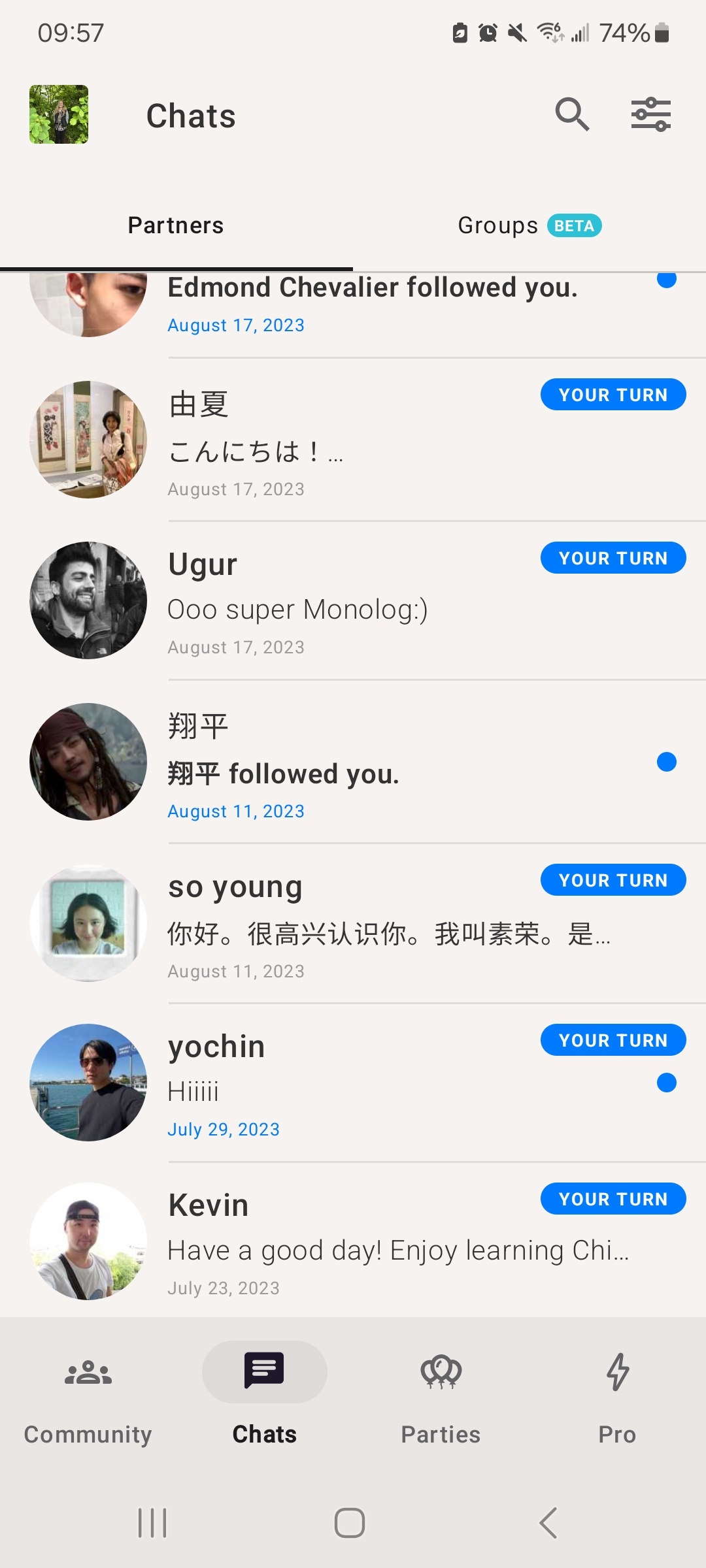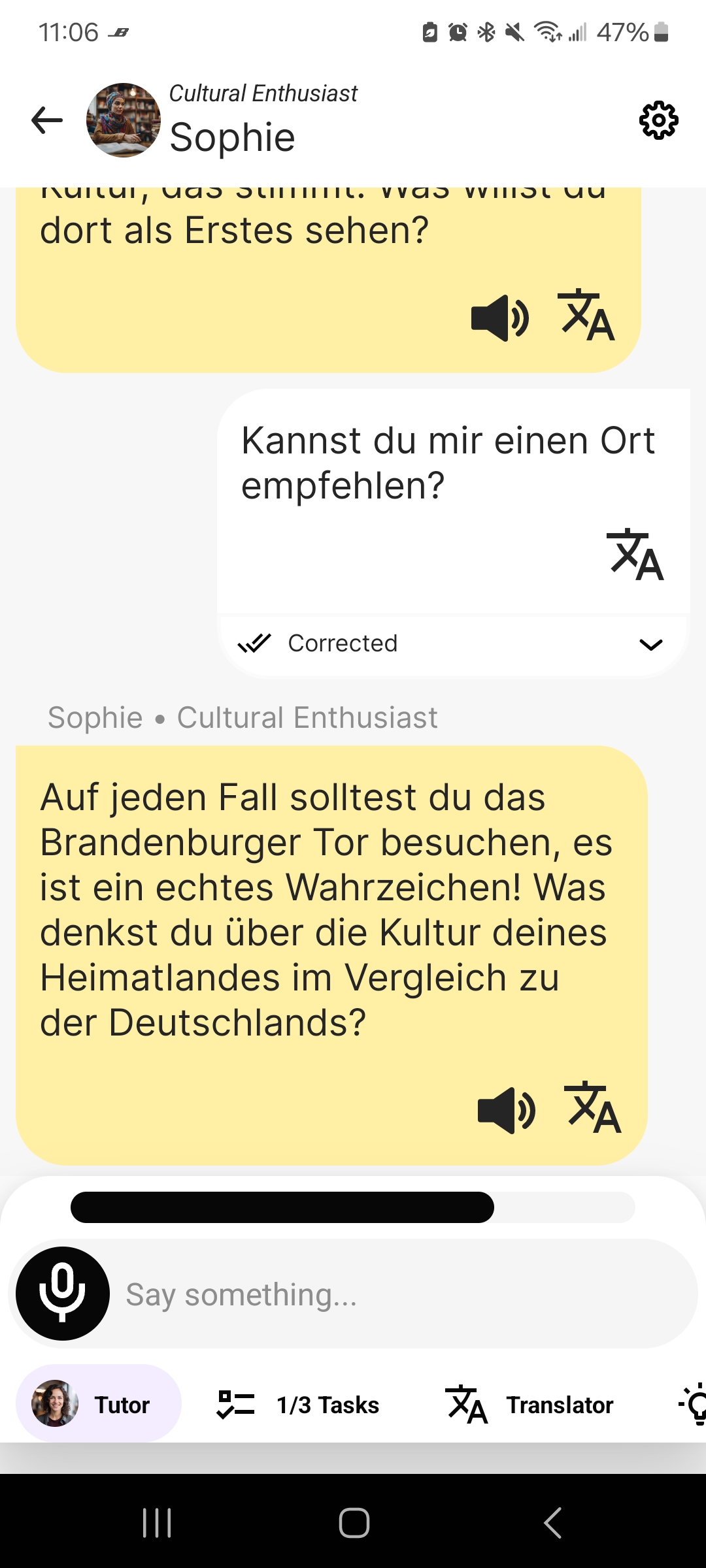Getting Started
Do you struggle to speak German even though you’ve been studying it for a long time? Despite what many people claim, you shouldn’t start conversing too early. You can practice simple phrases and sentences, but if you start trying to have conversations too early, you will build bad habits and be frustrated by your inability to form sentences. Many language learners wonder why speaking remains difficult even after months or years of study, but the truth is: you can’t speak if you don’t understand. It’s like trying to run before you can walk. Developing conversational skills requires extensive input and time. You can’t speak German as fluently as your native language because you haven’t spent nearly as much time with German. Additionally, practicing with a native speaker will be much more effective if you have a solid foundation. If you’re at the early intermediate level, start by refining your German pronunciation and practicing speaking through shadowing. This will help you build confidence and accuracy before jumping into full conversations. If you have been shadowing for a while and can comfortably understand simple daily conversation, then you are ready to practice speaking. In the beginning, you will make a lot of mistakes, and that’s ok. Sometimes it will be funny, and sometimes it will be embarrassing, but you’re learning. German people are very kind, and they understand it’s a difficult language to learn, so they are very supportive. Putting yourself out there is part of language learning and something all language learners have to do. You are not alone!
Language Exchange
You can use language exchange websites to connect with native speakers and practice writing and speaking for free. If you’re looking for someone more serious, Conversation Exchange is a great website. I often use it as a way to connect with people, then move on to speaking with them on a different platform like Line or Whatsapp. Hello Talk and Tandem are apps and great for chatting more casually. Make sure you are actively using your German and trying to respond in it. Communicate with your language partner what your language goals are, and see if you can schedule voice calls where half the call is in German and half is in English. Sometimes, if you don’t express a desire to talk, your whole conversation may be in English. Also, keep in mind that anyone can make a profile, so exercise caution when giving out personal information. If someone is making you uncomfortable, you do not need to respond. That being said, most of my experiences have been overwhelmingly positive, and I made several online friends that I talked to regularly for a long time.


Discord Servers
Discord is a great place to connect with people who have similar interests, and there are many servers for people learning languages! Discord is a great place to find a study group and people to practice with, and it’s low commitment, so you can join when you have time. Below you will find a popular server for German learners, a master list with lots of Discord servers for different languages, and a Discord server database of German language Discord servers.

Univerbal – Premium
If you are struggling a lot with speaking, Unvierbal is a great app for helping you practice conversation. In the app, you converse with AI, and it will give you automatic feedback and corrections. The conversations aren’t always the most realistic and they aren’t a replacement for a native speaker, but it’s a great app for gaining the confidence to speak. It’s also very convenient because you can use it any time, which is great if you struggle to plan practice sessions. It has lots of useful features, and the development team is very responsive to feedback. It isn’t free, but it is significantly cheaper than a tutor at $15/month or $120/year.

iTalki – Premium
If you would like individual, targeted feedback from a professional German teacher or tutor, then iTalki is a great resource. If you’re not yet comfortable talking to native speakers, one-on-one lessons with an experienced teacher can help you become more comfortable speaking. Go into tutoring lessons with an idea of what you want to focus on. Tutoring lessons are your chance to ask specific questions and focus on weak points. If you’re going to be paying for lessons, work on things you can’t do by yourself. German lessons are usually between $15-$30 per hour.







